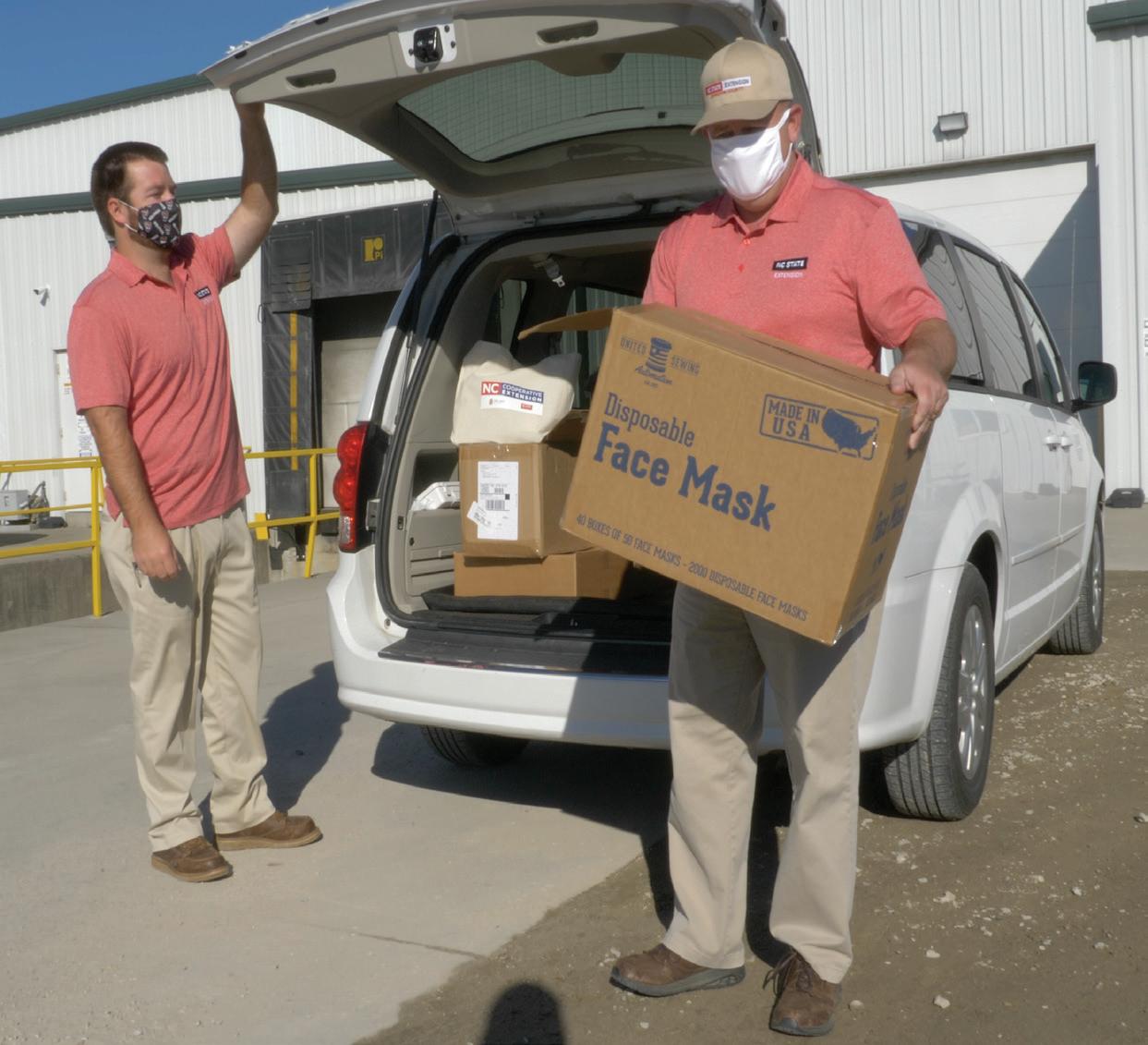
1 minute read
Driving Rural Economies
Extension Drives Rural N.C. Economy
Extension’s statewide network of centers and partnerships uniquely position us to support North Carolina’s rural communities, where the majority of our food and agricultural products are produced.
Of the state’s 100 counties, 80 are considered rural, according to the *N.C. Rural Center.
Through efforts like Cultivate NC, NC AgVentures, local food programming and the Farmworker Health and Safety Education Program, Extension facilitates job creation, builds sustainable agriculture and local food economies, promotes access to education for rural youth, and helps protect farmworkers while increasing farm productivity and profits.
Progress Through a Pandemic

Employees from Extension's Johnston County Center distribute personal protective equipment (PPE) like face masks to help farmworkers andothers during the COVID-19 pandemic.
Against the backdrop of a pandemic, the importance of Extension’s services in rural communities was magnified in 2020, as farmers and consumers alike relied on Extension’s guidance to navigate challenges created by COVID-19.
> ^Extension provided educational services to more than 500K North Carolinians in rural counties
> 478 new farms began selling into rural markets with Extension’s assistance
> 73,008 crop producers adopted Extension best management practices (related to production, pest control, nutrient management and more)
> 25,877 program participants increased their consumption of fruits and vegetables
> 10,460 youth in rural areas gained key career and employability skills through Extension 4-H programs
*N.C. Rural Center defines rural counties as those with an average population density of 250 people/sq. mi. or less
^Participants in limited face-to-face programming like events, trainings and workshops
Connecting Rural Communities
North Carolina is changing rapidly, a global pandemic notwithstanding. By investing in digital infrastructure at Extension county centers, research stations and field labs, the College of Agriculture and Life Sciences is ensuring that key facilities will help keep agriculture and rural communities growing.
In 2020, Extension continued to upgrade its county centers to broadband internet with the N.C. Research and Education Network, having now expanded the service to 24 counties, all in rural areas.
These Extension centers promote access to 21st century solutions vital to growing local communities and economies.
Several of the 18 research stations also incorporated high-speed fiber internet, including the Central Crops Research Station in Johnston County. Dr. Chris Reberg-Horton, Extension organic cropping specialist, is already using the station’s new network as part of a StressCam project that tracks drought stress in corn and soybeans.
Results from the project will help inform production practices for farmers across the region.









